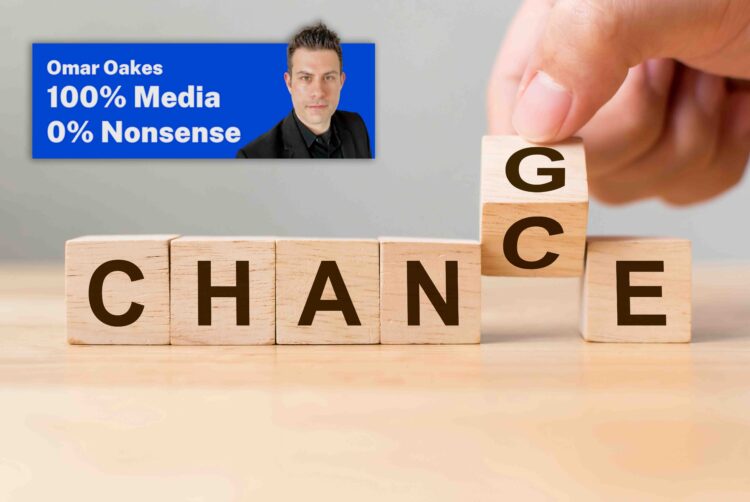The comfort zone is getting smaller and smaller

Opinion
We need advertising to continue to play a huge role in how we pay for media, but how that happens needs to change through innovation and collaboration, writes the editor.
Today The Media Leader has broken two stories about well-known commercial media veterans who have left big incumbent organisations to try something new and drive change.
Danny Donovan, the Mediahub CEO, has launched a new media agency called Build, in partnership with the challenger network Miroma Group, while Cadi Jones has left Comcast’s Beeswax to sell ‘zero party data’ solutions for publishers for ResTech business Qmee.
These are two very different people and businesses, but a common thread links their new endeavours: the commercial media industry is still ripe for significant disruption.
Clearly, media consumption has changed significantly over the last decade and the trend towards streaming media (as opposed to broadcast) has accelerated during the pandemic.
As The Grove Media’s David Price noted last week, this does not have to mean Netflix and Disney+ will take over the world with ad-free platforms.
Indeed, the industry needs advertising to succeed in a streaming world. Particularly at a time when energy prices will go up by 50% for many people this week and we face a cost-of-living crisis not seen since the 1970s, we should expect consumers to favour ad-supported media over a higher cost SVOD service.
How we pay for media through advertising needs to change, though.
Too much of online advertising is blighted by user privacy breaches, rampant ad fraud, lost money in the supply chain, and poor creative.
So it was refreshing to hear Donovan position his new agency around being a “positive force in the media world”. Beyond the nice buzzwords, he is clear that media planning can reflect a more positive marketing approach by, for example, committing to using trusted media channels and being mindful about users’ moods when it comes to measuring and optimising for their attention.
Clearly the implication is that the industry does not fulfil this demand well enough at the moment. But why?
“It’s clearly easier for a new agency to be clear about its proposition and build something relevant not just for now but for the future,” Donovan tells me. “It’s difficult to adapt and evolve larger agencies, you’ve got to be able to give a relevant service to all types of different clients.”
This echoed what BrandTech Group founder David Jones told me during a podcast conversation 18 months ago. Jones, who had previously been global CEO of Havas, was bearish of the future of incumbent advertising and media agency groups because they are not able to change quickly enough.
“[Advertising] has become a declining industry and you can sit there and go ‘Hey, it should be easy to make that not the case’ and look at what we and [S4 Capital] are doing… it’s just incredibly hard to change big traditional legacy businesses and if you look in history it’s never happened,” Jones said.
Jones’ new employers Qmee, meanwhile, is betting big on there being a coming Golden Age for online publishers as they benefit from a decline in advertising cookies being used, namely by being more effective at using their audience data and market research data.
“For the last 10 years of programmatic, the decision-making has been on the buy side,” Jones explains. “But, as cookies go away, the demand side have been trying to come up with a hacky way around it to ensure business as usual keeps going.
“Publishers have now realised they can take back control; they know their audiences better than anyone else.”
So here with we have a media agency that wants to ensure positive media outcomes through normative decisions around where and how ads are placed, and a consumer research company that aims to help publishers, and not Big Tech intermediaries, to be in the driving seat when it comes to how data about audiences is used.
Neither of these may be particularly sexy business goals but they are exciting. The next phase of online media, if advertising is going to continue to play a major role, has to be better quality relationships between brands, media owners, and consumers.
That means customer relationship management will be key, not the big 30-second spot at Christmas time. It means more sophisticated and privacy-conscious audience measurement will become the big media battleground, not race-to-the-bottom online media buying.
And I suspect it will mean more collaborative relationships and coalitions happening across business, rather than the reductive ‘winners and losers’ narrative that persists in some corners of the industry.
Because as the media industry continues to fragment and become more diverse, one media agency or one media owner will no longer be able to provide everything an advertiser needs under one roof.
Donovan and Jones are the latest in a number of media executives who are stepping out their comfort zone to try and create something new. I suspect more will follow in an industry that should now be full of new opportunities.
100% Media 0% Nonsense – Get the editor’s column in your inbox on Monday, with the latest news, analysis and opinion on The Media Leader. Sign up here.



